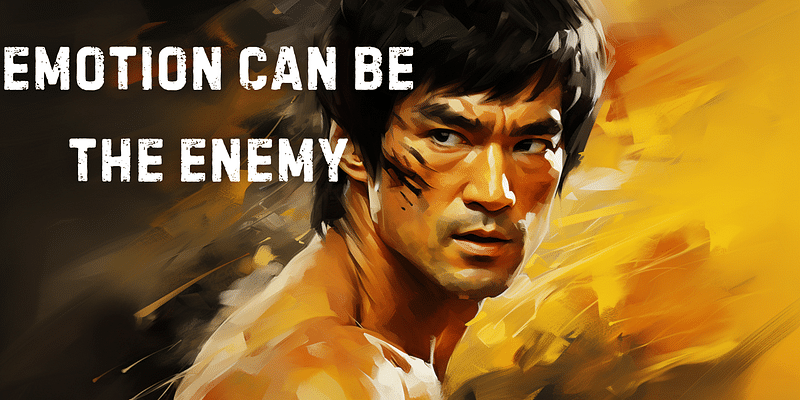
In the pantheon of influential figures who have melded philosophy with physical prowess, Bruce Lee stands as a colossus. Among his many profound observations, one that resonates deeply is, “Emotion can be the enemy, if you give into your emotion, you lose yourself. You must be at one with your emotions, because the body always follows the mind.” This statement encapsulates a profound truth about the human condition, particularly in the context of how emotions can influence our lives, for better or for worse.
Understanding the Dual Nature of Emotions
At its core, Lee’s quote speaks to the dual nature of emotions. On one hand, emotions are essential; they color our experiences and provide depth to our human existence. Without emotions, our lives would be devoid of passion, joy, and purpose. On the other hand, unchecked emotions can lead to turmoil. When we become slaves to our emotions, we risk being overwhelmed by anger, fear, or sadness, potentially leading to irrational decisions and actions that are detrimental to ourselves and others.
The Pitfall of Surrendering to Emotions
Surrendering to our emotions can result in losing ourselves, as Lee warns. This loss manifests as a disconnect from our true intentions and goals. For example, in a moment of anger, one might say or do something that deeply hurts others, later regretting it when calmness returns. This regret is a sign of the dissonance between our emotional impulses and our true self.
The Power of Emotional Harmony
Conversely, being at one with our emotions does not mean suppressing or ignoring them. Rather, it involves acknowledging, understanding, and harmonising with them. This harmony enables us to respond to situations with clarity and intention, rather than react impulsively. In martial arts, this concept is mirrored in the way practitioners learn to channel their emotions into focused energy, enhancing their performance rather than allowing emotions to become a source of distraction.
The Mind-Body Connection
Lee’s statement also touches upon the profound mind-body connection. Our emotional state can have significant physical manifestations. Stress, for instance, can lead to physical ailments like heart disease or high blood pressure. The converse is also true; a calm and focused mind can enhance physical well-being and performance. This interplay is evident in practices like meditation and yoga, where calming the mind directly benefits the body.
Applying Lee’s Wisdom in Daily Life
Applying this wisdom in everyday life involves self-awareness and emotional intelligence. It requires recognising our emotional triggers and understanding their origins. Developing strategies to maintain equilibrium in the face of emotional challenges is crucial. This might involve techniques like deep breathing, mindfulness, or simply stepping back to gain perspective in emotionally charged situations.










